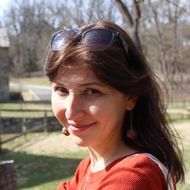- A
- A
- A
- АБB
- АБB
- АБB
- А
- А
- А
- А
- А
- НИУ ВШЭ в Санкт-Петербурге
- Санкт-Петербургская школа гуманитарных наук и искусств
- Департамент истории
- Учебные курсы
- История науки 2024 и 2025 учебного года
-
Департамент
-
Образовательные программы
Адрес:
190068 Санкт-Петербург
Набережная канала Грибоедова, 123 лит А, кабинет 123
Тел. +7 812 644-59-11 *61417
Руководитель департамента
Департамент был основан как факультет истории в 2012 году. Основная цель департамента — систематическое развитие глобальной, сравнительной и транснациональной истории как общей рамки исторического знания и инструмента преодоления ограничений, создаваемых канонами национальной истории. Миссия департамента — развитие нового типа исторического образования в России и новых исследовательских областей российской историографии в диалоге с современной мировой историографией.
В данном разделе Вы найдете онлайн лекции от наших преподавателей!
Адрес:
190068 Санкт-Петербург
Набережная канала Грибоедова, 123 лит А, кабинет 123
Тел. +7 812 644-59-11 *61417
Руководитель департамента
История науки
- О кампусе
- Сведения об образовательной организации
- Руководство и структура
- Подразделения
- Преподаватели и сотрудники
- Попечительский совет
- Корпуса и общежития
- Закупки
- ВШЭ для студентов с ограниченными возможностями здоровья и инвалидностью
- Версия для слабовидящих
- Единая платежная страница
-
http://www.minobrnauki.gov.ru/
Министерство науки и высшего образования РФ
-
https://edu.gov.ru/
Министерство просвещения РФ
-
http://www.edu.ru
Федеральный портал «Российское образование»
-
https://elearning.hse.ru/mooc
Массовые открытые онлайн-курсы
- © НИУ ВШЭ 1993–2025 Адреса и контакты Условия использования материалов Политика конфиденциальности Карта сайта
- Редактору


Преподаватель
Лоскутова Марина Викторовна
Программа дисциплины
Аннотация
Цель освоения дисциплины
Планируемые результаты обучения
Содержание учебной дисциплины
Элементы контроля
Промежуточная аттестация
Список литературы
Рекомендуемая основная литература
Рекомендуемая дополнительная литература
Авторы